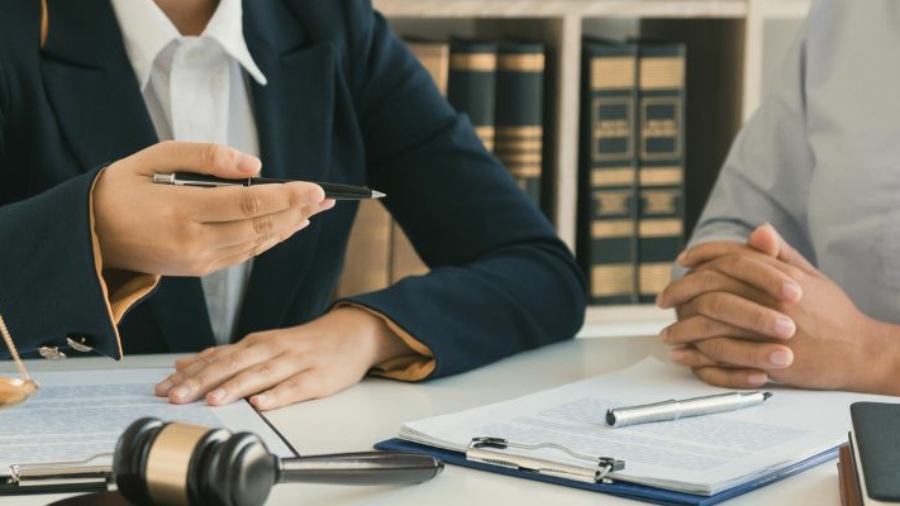Criminal proceedings can be divided into three stages: Preliminary proceedings, main proceedings and appeal proceedings.
Not every criminal case has all three sections. If the preliminary proceedings are discontinued, for example, because there is no act threatened with punishment, there is no indictment. If the verdict is not contested, there is no appeal procedure.

Investigation
The aim of the preliminary proceedings is to clarify whether the public prosecutor's office has to file charges or whether the proceedings have to be discontinued (e.g. due to insignificance) or whether it is necessary to withdraw from the prosecution ("diversion").
The preliminary investigation usually begins as soon as the police become aware of a criminal act and start investigating to clarify an initial suspicion (e.g. questioning witnesses; seizing drugs, etc.).
The preliminary proceedings often set the course for the later outcome of the proceedings. If preliminary proceedings have been initiated against you, it is advisable to consult a lawyer specializing in criminal law as early as possible.
The first prerequisite for developing a defense strategy is to find out what evidence is available against you. This requires a comprehensive inspection of files at the police and public prosecutor's office.
Ideally, you should hire a lawyer who specializes in criminal law before you are questioned by the police. Depending on the specific case, it may make sense for the accused not to make a statement to the police ("right to refuse to testify") or a written statement may be made by the accused.
Furthermore, requests for evidence exonerating the accused can already be made during the preliminary proceedings (e.g. questioning of exculpatory witnesses).
Main procedure
If, on the basis of the results of the police investigation, the public prosecutor's office comes to the conclusion that the initial suspicion has been substantiated, it files charges or a criminal complaint with the competent court.
The main hearing begins with the judge calling the case. The defendant takes a seat in the center ("dock") and the judge takes the record (name, income, does the defendant plead guilty or not guilty). This is followed by the opening statements of the prosecution and then the defense counsel. The judge questions the defendant about the course of events. The prosecutor and defense counsel then have the right to ask questions. The defendant then takes a seat next to his defense attorney.
The witnesses are called in turn (one at a time) and questioned by the judge. Afterwards, the public prosecutor and the defense attorney have the right to ask questions to each witness. Even if a witness heavily incriminates you or tells the untruth, stay calm! You will not score any points with the court if you interrupt the court or a witness.
Furthermore, motions may be filed during the main hearing by the public prosecutor or by the defendant and his defense counsel in order to influence the course of the trial (e.g. to summon additional witnesses, to appoint an expert or to request an adjournment). The court decides whether to grant the motions.
Once all witnesses have been questioned and no further motions are filed, the court closes the evidentiary proceedings. The prosecutor and defense counsel make their closing arguments; the defendant has the last word ("e.g., I concur with the words of my defense counsel, would like to sincerely apologize for my actions, and ask the court for a lenient sentence").
The main proceedings end with the pronouncement of judgment (acquittal or guilty verdict). In any case, the pronouncement of the verdict still takes place during the main hearing (unlike in civil proceedings).
Appeal procedure
Legal remedies (appeal and/or nullity appeal) may be taken to check the judgment (the court may also make mistakes).
At the pronouncement of the verdict, the court also gives instructions on the right of appeal. The court asks the defendant whether he/she agrees with the verdict. The defendant can either accept the verdict while the trial is still in progress, file an appeal, or ask for time to think it over. If the verdict is favorable to you, they will file a waiver of appeal (accept it). If the public prosecutor's office also agrees with the verdict, it becomes legally binding (becomes legally effective and cannot be changed).
In case of doubt, ask the court to have a brief exchange with your defense attorney to discuss the verdict. An appeal must be filed within three days from the date of pronouncement of the judgment (the day of pronouncement of the judgment is not counted).
The court shall then deliver the written copy of the judgment, whereupon the appeals shall be executed in writing within four weeks.
The result of an appeal procedure is, in overview, that
- the judgment remains in force and becomes legally effective, or
- the judgment is set aside in whole or in part.


Add a Comment